Nil Clausum Sincero - Nothing remains hidden from the honest
My direct ancestor of the fifth generation chose this Latin sentence as the motto for his coat of arms in 1794. It was awarded to him by the Prince of Waldeck when he was a legal counselor and government assessor there. As the son of a baker from Bremen, he first studied theology in Bremen and Göttingen, then law in Utrecht (NL) and became a doctor of both secular and ecclesiastical law (JUD). In 1794 he married Katharina Sophie Escher, the daughter of the master builder Heinrich W. Escher, in Bad Arolsen. Therefore his boundless optimism and the fact that nothing seemed impossible or closed to him can be understood. Today I wear the coat of arms ring every day in memory of an exciting and eventful history of my family. I wrote part of it down in my first book.

The secret behind the photo
A German story between 1917 and 1969.
The e-book tells the story of my father Wolfgang (1929-1969) and my grandfather Walter (1899-1945).
After my father's early death (I was only five years old at the time), I knew almost nothing about his life for a long time. It was only when I was over forty, after a trip around Vietnam, that I began to research his life.
It turned out, among other things, that my father had a family in Vietnam. He lived there for over ten years from 1952 and was initially a soldier in the Foreign Legion. He deserted from the Legion so that he could stay with his wife and daughter. He returned to Germany involuntarily in 1962 and wanted to have his wife and daughter join him. When this did not work out, he started a new family.
The story

War and the military as a constant in the family
Walter Redlich
My grandfather comes from a middle-class family from Münster. For generations, they have been closely connected to the Prussian military. At the age of 17, in the summer of 1917, he volunteered for the 13th Infantry Regiment in his hometown. He was wounded on the Western Front during the bloody Battle of Laffaux Corner in October 1917 and was taken prisoner by the French.
When Walter returns, Germany has changed dramatically. The Kaiser has abdicated and gone into exile in the Netherlands. The country is a republic with a social democrat as president.
The young republic soon comes under pressure. Right-wing putschists try to abolish it again, striking workers in the Ruhr area fight for a revolution like in Russia.
Walter joins a volunteer corps and witnesses the soldiers murdering the rebellious workers in Raesfeld.
He meets Agnes, his future wife, who comes from a strict Catholic family. Religious differences are an obstacle in Münster at the time after the church struggle.
They get married in the autumn of 1923, when galloping inflation reaches its peak. Housing shortages and fears about the future initially dominate life.
Four children are born before the fascists seize power in Germany in 1933.
Walter comes to terms with it and joins the NSDAP in 1937. The terror of the Nazis and the beginning of the war change life in the city. Three children are sent to Bavaria in 1943. Walter becomes a soldier again at the age of 44 and fights in the Battle of the Bulge in December 1944. He is taken prisoner again; this time he does not return.

A turbulent youth
Wolfgang is the third child of Walter and Agnes.
As a sensitive boy, he struggles with the strictness of his parents and the narrowness of his home. When he is sent to Bad Reichenhall for the children's evacuation program at the age of 14, he is actually still far too young for it. He will be away from home for more than two years. But in 1945, the horrors of war catch up with him in Bavaria too.
When he finally returns home in August 1945, nothing is as usual. The apartment has been bombed out, his mother is desperate because his father is missing on the Western Front. It is not until 1947 that they learn of his death in the camp near Rennes.
Wolfgang and his brother enter the omnipresent black market and have their first homosexual contacts with other men.
Rudi becomes his long-term lover. He is brought to court three times and convicted of Section 175of the criminal code, among other things.
His mother finally forces him to "come clean", thus incriminating his male acquaintances.
When he is released from prison again after seven months at the end of 1951, he decides shortly afterwards to make a fresh start in the French Foreign Legion and thus escape the past.
He makes his way to Marseille and signs up for a five-year service. He is sent to Algeria for basic training. Then he is shipped to Indochina, where the first Vietnam War has been raging since 1945.
The Horrors of the War in Vietnam
In September 1952, Wolfgang set foot on Vietnamese soil in Saigon. He was deployed as a radio operator on a patrol boat in the Red River Delta in the north of the country.
At this point, the war is already lost for France. The Việt Minh soldiers are putting the French under increasing pressure. The fighting is becoming increasingly brutal and threatening.
Wolfgang is constantly writing to his mother about his experiences.
After the Battle of Điện Biên Phủ, the war is finally lost for France. At this time, Wolfgang meets a young local girl.
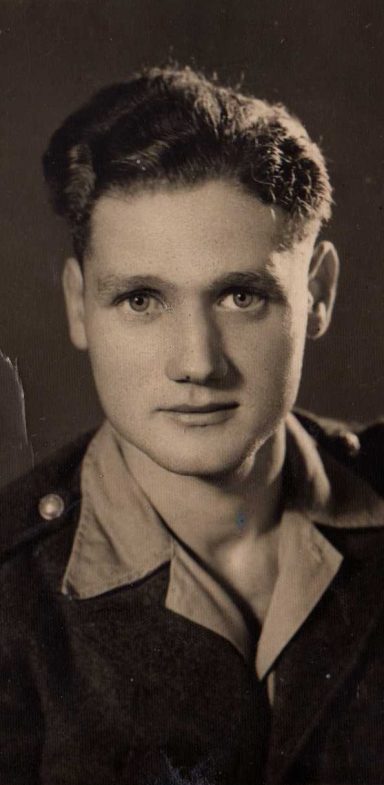

Everything for the Family
The initial flirtation develops into love. When a child is on the way, everything changes for Wolfgang. In January 1955, his daughter is born; he calls her Karin. At first he doesn't write anything to his mother about his family; she had reacted too negatively to the first, cautious information about his "foreign" partner.
After the peace negotiations in Geneva, the French soldiers have to leave the country gradually. Wolfgang is to be sent to the next war in Algeria. He prefers to stay with his family.
When he has no other choice, he deserts from the Legion in Đà Nẵng (French: Tourane) a week before embarkation in January 1956. He hides with his wife and daughter in the Mekong Delta near Cần Thơ in the south of Vietnam.
Here he builds a new life for himself; first as a machinist in a rice mill, then as a representative for a German import and export company in Saigon.
His illegal residency status keeps getting in his way. He fears being arrested and extradited to France, where he faces ten years in prison.
Eventually they go into hiding on the tobacco farm of a former legionnaire in Nha Trang.
Here, too, the civil war catches up with him again. He is forced to leave the country. The German embassy organizes his return to Germany on a ship. He cannot take his wife and daughter with him.
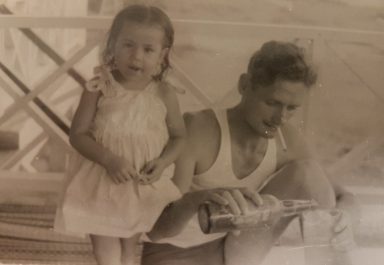
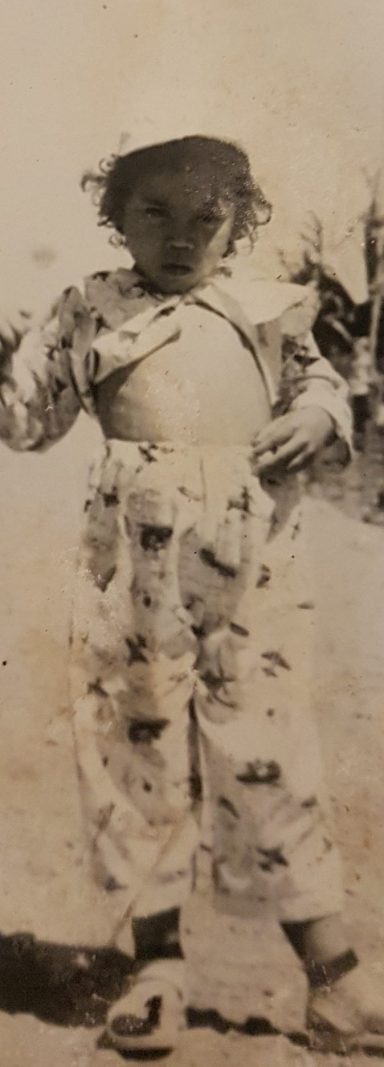
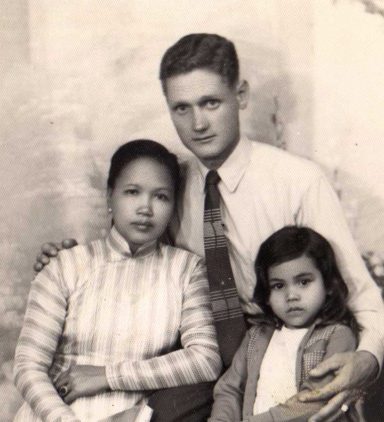
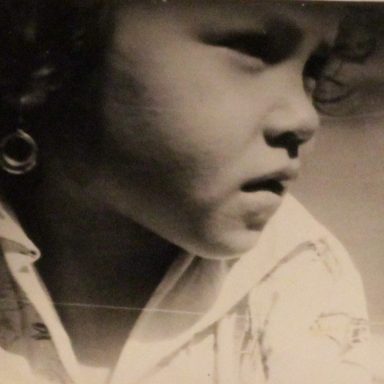


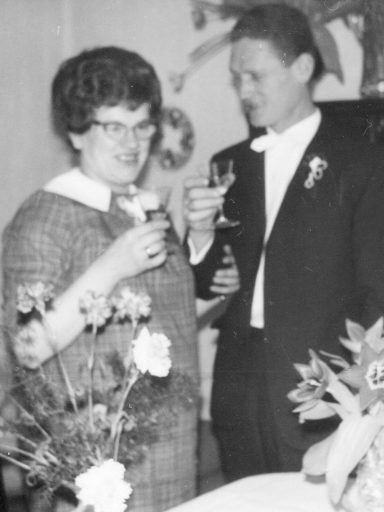
Back again
After his return at the age of 33, he initially lives with his mother again, who happily takes him in. He looks for a job and tries to bring his family over. By chance he meets the Vietnamese bishop from Cần Thơ, who is visiting Münster. He promises to mediate in the family reunification - unfortunately without success.
Wolfgang is desperate. When a short-term acquaintance is expecting his child, he makes a decision. He leaves Vietnam behind and marries the heavily pregnant woman against his mother's wishes.
A total of four children are born in quick succession.
Wolfgang is torn. On the one hand he loves his German family, on the other hand he cannot forget his time in Vietnam, especially his daughter Karin.
The news from Vietnam, now from the American Vietnam War, is getting increasingly bleak.
His mother is also putting him under pressure because of her disappointed expectations.
How will the story end for him?uschten Erwartungen zu.
Wie wird die Geschichte für ihn ausgehen?


The author
Born in 1964 in Münster / Westphalia. Married, two children and one grandchild.
I am still connected to the Münsterland region today. This is my homeland, this is where I feel at home.
I didn't start writing until I was over fifty.
Childhood and Youth
After my father's early death when I was only five, our mother raised her four children alone. It was not an easy time and it had a strong impact on me. Experiences of social exclusion, poverty and a life on the fringes of society were our reality.
Family research
For over forty years I knew practically nothing about my family history. Even my grandparents were only a faint memory. It was only after my honeymoon in Vietnam in 2009 that I became interested in it. Today I have a family tree with over 4,000 entries, have found a previously unknown half-brother of my mother, can trace some of my ancestors back to the year 1600 and have branches of my ancestors in countries such as the USA, Brazil, Switzerland and France. It is a fascinating hobby and I learn something new about the lives of my ancestors every day.


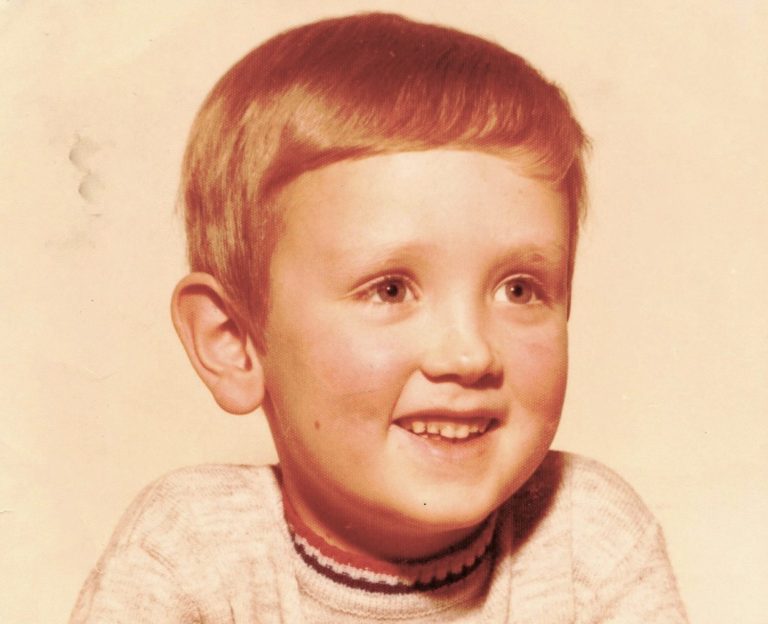
Career and education
At secondary school I developed a strong interest in chemistry. This influenced my choice of career and so in 1980 I began an apprenticeship in the laboratory of a large paint manufacturer in Münster. At first it was not possible to get my high school diploma and university degree, but I had to do it later. When I was over forty I studied "International Management" at the FOM. I did further training as a systemic consultant with Fritz B. Simon and as a mentor for biographical work with Herta Schindler. I am a certified Six Sigma Black Belt and an experienced LEAN user. The challenge of improving existing processes fascinated me. In my job I have also worked a lot with change management.
Research and first book
After returning from Vietnam, I began to research my father's life. He died young and was not only absent for us children, but disappeared from every story. He and his life were surrounded by a great silence, with rumors and stories passed on behind closed doors.
It quickly became clear that much of it was false and simply lies. I found out that I have an unknown half-sister in Vietnam. She was born in 1955 when my father was a soldier in the French Foreign Legion in Indochina.
My grandfather's life also required more in-depth research in order to better understand my father's life.
They were people of their time: surrounded by things they could not influence, they made decisions that changed their lives.
Contact me using the form:
Datenschutzerklärung © Urheberrecht. Alle Rechte vorbehalten. Impressum
Wir benötigen Ihre Zustimmung zum Laden der Übersetzungen
Wir nutzen einen Drittanbieter-Service, um den Inhalt der Website zu übersetzen, der möglicherweise Daten über Ihre Aktivitäten sammelt. Bitte überprüfen Sie die Details in der Datenschutzerklärung und akzeptieren Sie den Dienst, um die Übersetzungen zu sehen.
